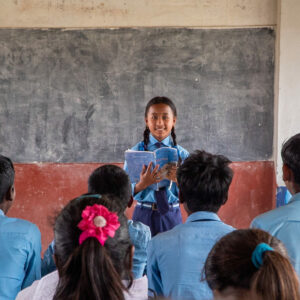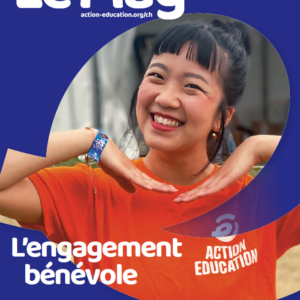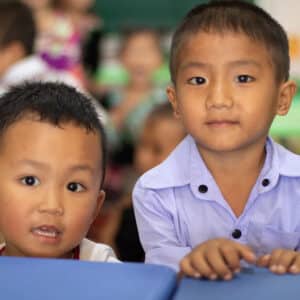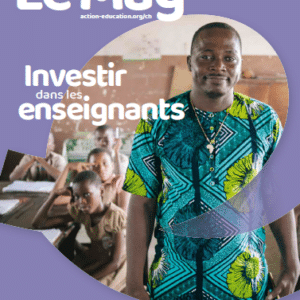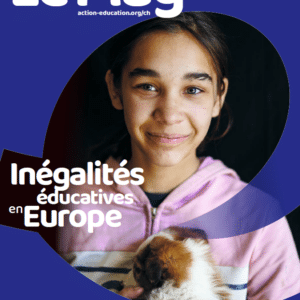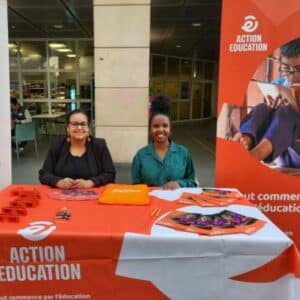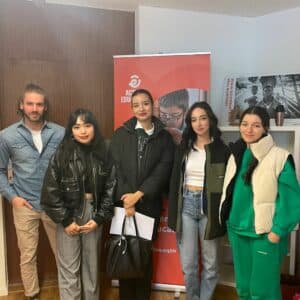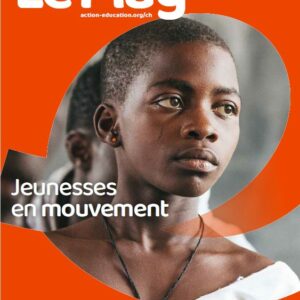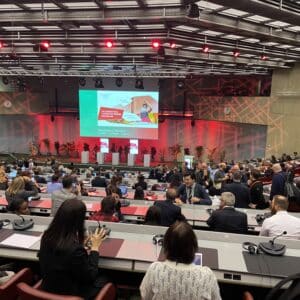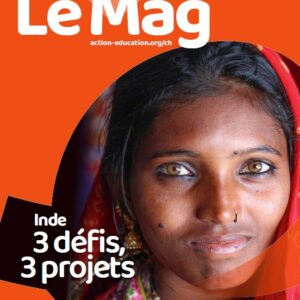Photo credit: Aide et Action
The introduction of a gender approach in international solidarity projects makes it possible to act more effectively to establish gender equality. Mathieu Cros, Head of Research, Evaluation and Capitalization at Aide et Action, tells us about the study that has just been launched within the association.
Can you tell us what the objective of this study is?
At Aide et Action, we have been working on access to education for women and girls for a very long time, with many projects on this theme. But beyond access to education and literacy for girls and women, the issue of gender arises in all its complexity.
A quick reminder about gender: gender refers to the socially constructed roles assigned to women and men, and the social relationships between women and men. These roles and relationships depend on social and cultural factors. They are conveyed (by institutions, the family, education, etc.) and can be modified and evolve under various influences (education, laws, technologies, etc.). These social constructions are a source of inequality between women and men. This is mostly to the disadvantage of women, and has a particular impact on education, as women have a lower overall level of education and a higher illiteracy rate.
One of the priority cross-cutting themes as defined in our strategic orientations for the period 2020-2030 is the empowerment of girls and women. The question of our study is very simple: how do we make this priority a reality in our projects? Taking the gender issue into account today also means questioning our practices and the social relationships based on gender in our organisation more broadly. We can have a project that promotes girls' access to education, but that does not mean that we will be gender-sensitive in the way we implement the project. For example, perhaps in order to promote girls' access to education, we will rely on the school's parent-teacher association, which is run by men. So we will be cut off from the participation of mothers on the subject of school.
The objective of our study is to analyze our current practices and draw lessons to improve gender mainstreaming: this could lead to the creation of specific tools, training actions for Aide et Action teams, etc.
How will the study be carried out?
We are launching the study on African countries where the under-schooling of girls is more prevalent than on other continents where we are working. Aide et Action is present in Africa through many projects. For the study, we decided to select 4 projects that we felt were representative of our action in 4 countries (Guinea, Benin, Madagascar and Burkina Faso). We tried to have a diversity of contexts (security...) and types of projects (primary schools, adult education...).
The study is divided into three phases. It starts with an observation of our current practices. This is followed by a phase of forward thinking to determine the main priorities for both our projects and our internal practices. The last stage consists of implementing an action plan. This has a 2-3 year horizon and concerns the major internal projects to take gender into account (organisational practices, human resources, project management, etc.).
In order to support and monitor this action plan, it is planned to set up a gender working group within Aide et Action in the second half of 2022, which will also have a role to play in the rest of the organization. This will allow for the monitoring and evaluation of our actions.
Can you tell us a little about the workshop that was held in Conakry?
The first project visited was Skills for tomorrow in Guinea. During a workshop in Conakry, we brought together the main actors of the project: beneficiaries, partner town hall, Aide et Action team, partner associations... We tried to observe what is happening in terms of gender in this project and territory. What are the experiences of young women and men in the commune concerned in terms of gender? What are the good practices in the field of international solidarity that could be implemented to better take gender into account in the project?
To analyse gender issues, we use different participatory tools. For example, the transform'action tree allows us to question social relationships based on gender. The roots represent the root causes (stereotypes, social norms, etc.). The fruits represent the impacts of the gender system. The branches represent the school, the family, the community... Finally, the trunk of the tree corresponds to the intermediate mechanisms (of reproduction) on which we can act. For example, at school, teachers can convey gender norms. We can try to change these practices. We can also see that women have little access to credit, which makes them less autonomous to start a professional activity. Here again, we have levers to act. This tree metaphor works very well with people who have little training or are used to project management. Through dialogue, this tool can also make men aware of the burden that weighs on women.



